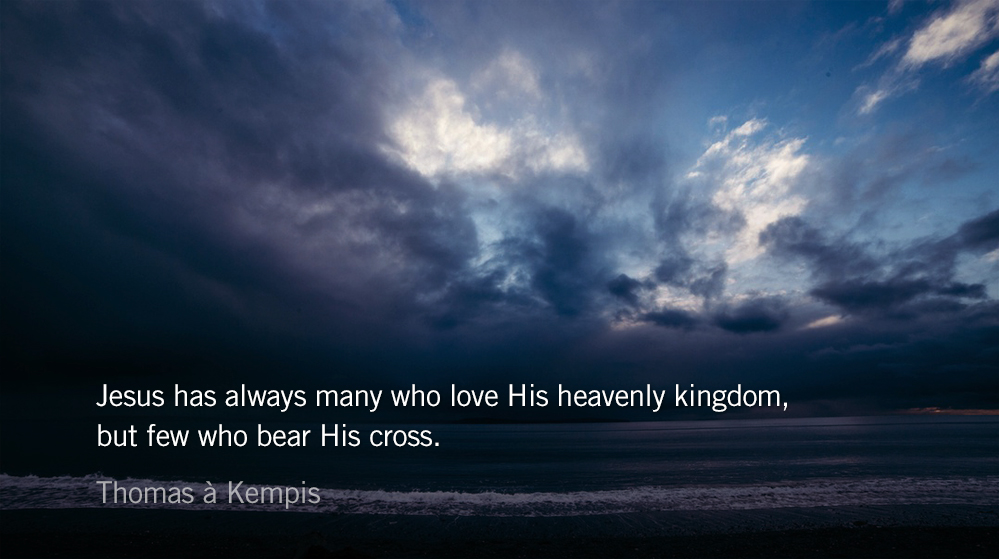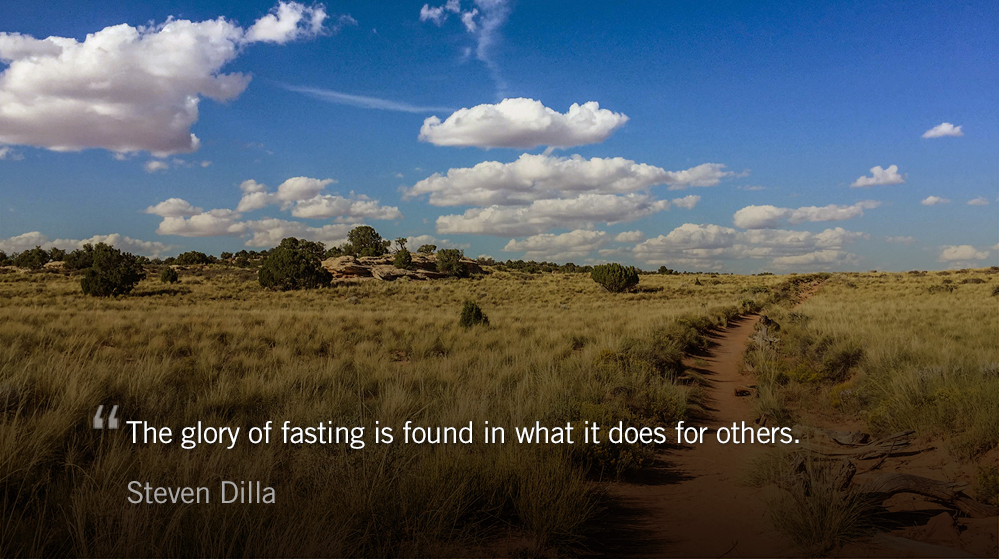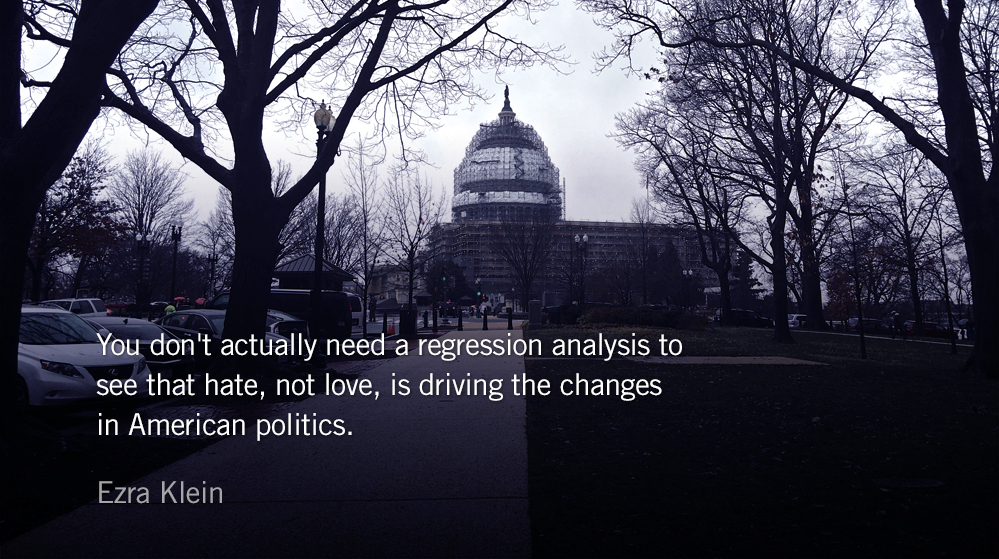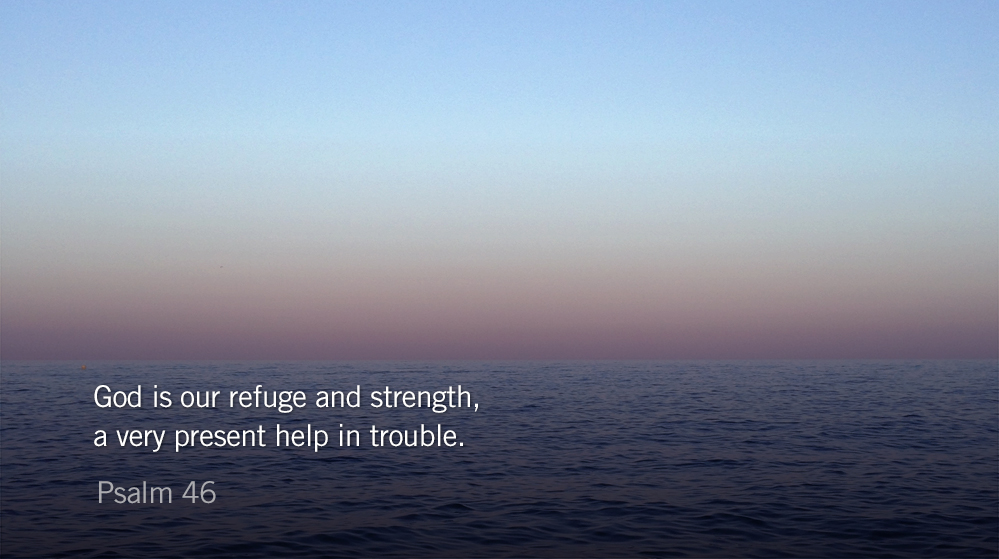As with the biblical transfiguration story, we’re not allowed to live on the mountain—yet. It’s no surprise that Peter, James, and John all likely wanted to pitch a tent and stay there for a while; but that’s not how it works. We are I think called to live very real lives in society, but to live them with an awareness of new mountaintop realities. — Greg
Readers’ Choice (Originally published March 17, 2016)
By Thomas à Kempis (c. 1379-1471)
Jesus has always many who love His heavenly kingdom, but few who bear His cross. He has many who desire consolation, but few who care for trial. He finds many to share His table, but few to take part in His fasting.
All desire to be happy with Him; few wish to suffer anything for Him. Many follow Him to the breaking of bread, but few to the drinking of the chalice of His passion. Many revere His miracles; few approach the shame of the Cross. Many love Him as long as they encounter no hardship; many praise and bless Him as long as they receive some comfort from Him. But if Jesus hides Himself and leaves them for a while, they fall either into complaints or into deep dejection.
Those, on the contrary, who love Him for His own sake and not for any comfort of their own, bless Him in all trial and anguish of heart as well as in the bliss of consolation. Even if He should never give them consolation, yet they would continue to praise Him and wish always to give Him thanks. What power there is in pure love for Jesus—love that is free from all self-interest and self-love!
Do not those who always think of their own profit and gain prove that they love themselves rather than Christ? Where can a man be found who desires to serve God for nothing? Rarely indeed is a man so spiritual as to strip himself of all things.
If a man has great virtue and much ardent devotion, he still lacks the one thing that is most necessary to him. What is this one thing? That leaving all, he forsake himself, completely renounce himself, and give up all private affections. For truth itself has said: “When you have done all that you were commanded, say, ‘We are unworthy servants; we have only done what was our duty.’”
Then he will be truly poor and stripped in spirit, and with the prophet may say: “I am alone and poor.” No one, however, is more wealthy than such a man; no one is more powerful, no one freer than he who knows how to leave all things and think of himself as the least of all.
*Abridged from The Imitation Of Christ.
Today’s Reading
Jeremiah 44 (Listen – 6:10)
Psalms 20-21 (Listen – 2:37)
Submit a devotional for Readers’ Choice
Contribute your favorite Park Forum devotionals to Readers’ Choice.
Email me the title or link. If you don’t mind adding a sentence or two as to why each post was significant to you, I would love to include your voice as well.
Thanks for being part of The Park Forum community. We are so thankful to be part of your devotional rhythm.











